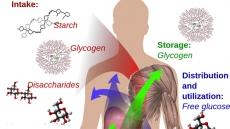A look at a few of the primary supplements and see what benefits they do or don’t have to offer.
For the uninitiated, few aspects of fitness and exercise are as mysterious as supplements. You’ve probably seen them in their colourful tins and bags boasting exciting names like “Turbobooster” or “Muscle-Machine,” or an array of seemingly nonsensical letters. And you might have seen other people at the gym mixing these strange powders into their water before, during, or after their workouts. So now you’re wondering — what do these fitness supplements do? And do they really work?
Let’s take a look at a few of the primary supplements and see what benefits they do or don’t have to offer.

Pre-workout aka Caffeine
Fitness enthusiasts who are looking to get the most out of every workout session will often take some sort of pre-workout drink about 30 minutes before hitting the weights. Pre-workouts are intended to give you more energy as well as greater focus and endurance.
The primary ingredient in any pre-workout is good old-fashioned caffeine, which is leveraged to give you an extra boost of energy. This can be bolstered by a range of ingredients, such as niacin, vitamins B6, B12, and C, folic acid, beta-alanine, and more.
Different products deliver different results, but pre-workouts tend to do what they promise. If you find yourself lagging in the gym, this is the supplement for you.

Whey Protein
If you’re working out hard, your body needs plenty of protein to repair and build muscle. But it can be difficult to consume enough protein via your typical diet. This is where whey protein comes in. There are a variety of different protein supplements out there, but studies have shown that whey-based protein products are the easiest for your body to utilize. It’s best to take it within an hour of working out, and if you’ve been lifting really heavy, you can maximize your muscle gain by taking a scoop before bed or right after waking up.
Creatine
For a long time creatine had a bad reputation due to anecdotal tales of negative side effects, but modern studies have shown that it is not only safe, but highly effective at delivering a big boost to muscle growth. What’s more, it can provide energy during workouts and improve memory and focus.
The important thing to keep in mind with creatine is that you can’t just drink a scoop and get results. You need to let it build up in your system over time. That means either taking 5/g a day over the course of a month, or doing a “loading phase” of 20/g a day for a week, followed by 5/g a day after that.
If you decide to go with the loading phase, be sure to drink lots of water as creatine draws extra water into your muscles, which can leave other parts of the body dehydrated.

BCAAs
Few supplements are as controversial as Branched-Chain Amino Acids, otherwise known as BCAAs. Supposedly they help create the ideal conditions in your body for burning fat and building muscle, and many athletes swear by them when it comes to muscle recovery and easing soreness. That being said, there isn’t much science to support their effectiveness.
Research has shown that while people who exercise do benefit from BCAAs, the reality is that the vast majority of people already get plenty of them in their diet. Chicken, beef, eggs, milk, nuts, brown rice, and a range of vegetables are all rich with BCAAs, so a lot of experts say supplements are unnecessary.
That being said, there are plenty of trainers and athletes who are diehard BCAA proponents. So this might be a case where it’s worth giving it a try and seeing if it’s right for your body.
Keep in Mind…
It’s important to understand that fitness supplements will not make you fit! They are there to supplement a healthy diet and promote a more effective workout routine. You can’t simply eat a ton of whey protein and build muscle. If you’re not working out enough to use all that protein, then not only will the muscles never grow, but you’ll actually gain fat due to the added calories.
So eat a healthy diet, build a solid workout routine, and use supplements like these to gain an extra edge. They’re not magical — merely supplemental.






